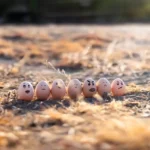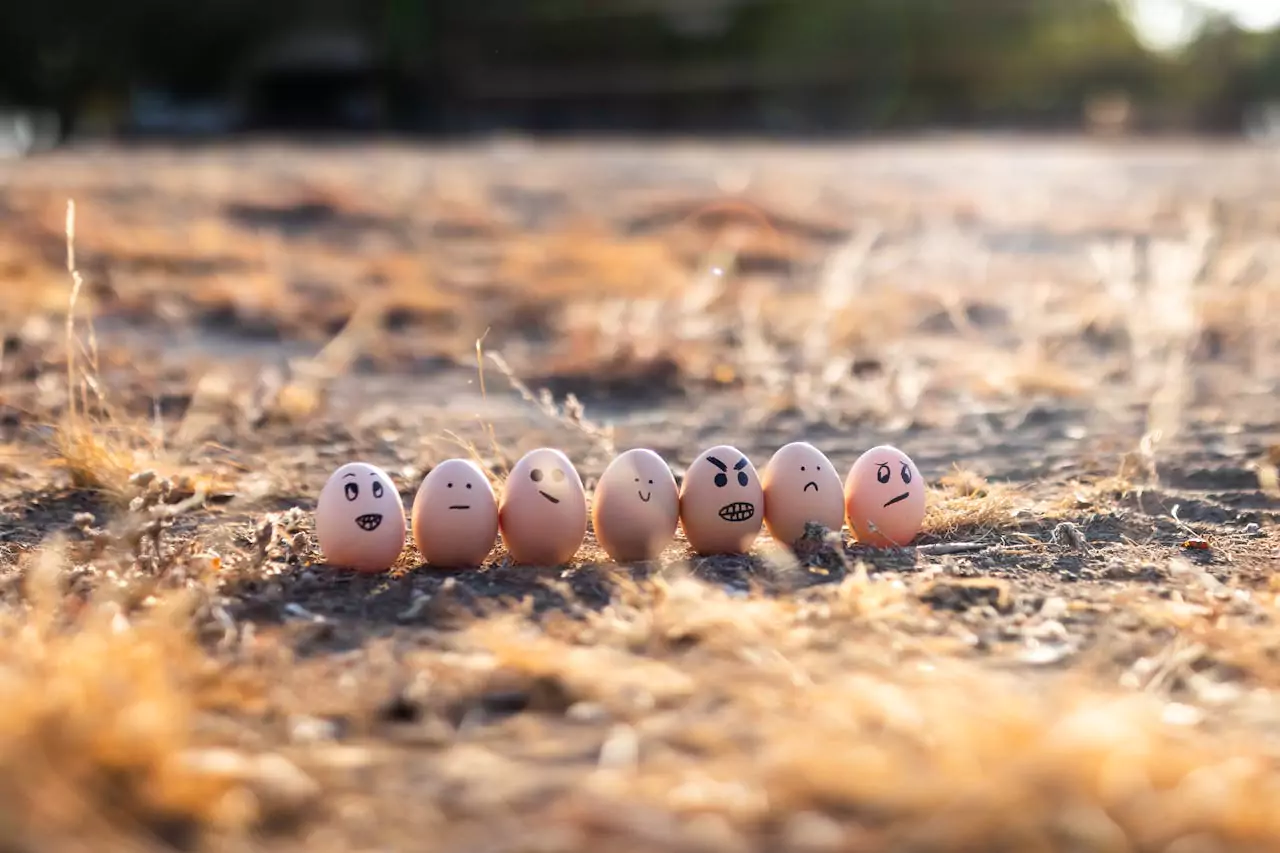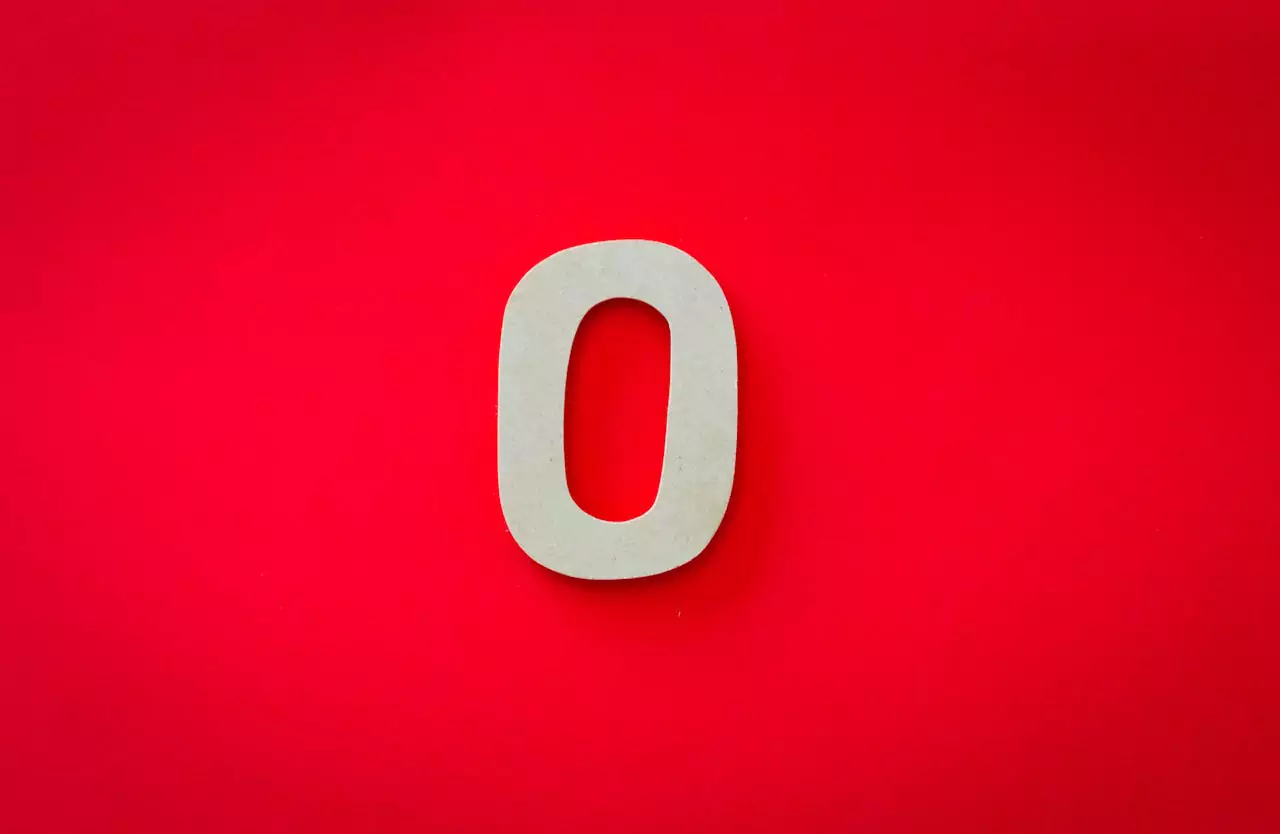Imagine waking up on Sunday morning, but no frying pan is waiting for a golden, runny-yolked egg. No scrambled eggs, fluffy omelets, and good luck with the French toast. Actually, what would brunch without eggs be? Eggs aren’t just food—they’re in everything from baking to animal reproduction. If eggs had never existed, life would look drastically different. Let’s dive into the many ways our world would be flipped over—sunny side up, of course.
Table of Contents
Eggs and Animal Reproduction: The Missing Puzzle Piece
Eggs are just the ultimate starter pack of life in nature. Reptiles, birds, fish, amphibians, and even most insects require eggs to start a new life. The animal kingdom would be really stuck in a pickle if eggs did not exist.
What About Species Survival?
Without eggs, birds would be out of luck. No eggs means no baby birds, which means… no birds at all. Chickens, ducks, eagles—all gone. Reptiles would face the same fate; imagine a world without turtles or lizards! Even fish and insects, which rely heavily on egg-laying, wouldn’t stand a chance. In short, animal populations would plummet, leaving us with a much quieter and less colorful world.
And let’s not forget insects! The very pollinators that grow food, bees and butterflies, would be lost. Insects rely on eggs to be able to continue their race; therefore, no eggs mean less insects, less pollination, soil health, and stability of whole ecosystems. The bottom line is that Mother Nature would scramble to keep everything in balance.
Evolution Could Take a Wild Turn
If eggs never existed, animals might have had to find other ways to reproduce. Mammals give birth to live young, but birds and reptiles? Not so much. Evolution might have taken a different turn, but adapting from eggs to live birth is no small feat. It’s like switching from being a baker to a brain surgeon overnight—possible, but incredibly complex. Without eggs, nature’s game plan for life would look very, very different.
The Food Industry Without Eggs: Bakers’ Nightmare
Eggs are a star player in the food world. In fact, they’re the MVP of many recipes. Without eggs, the food industry would be in serious trouble. Bakers, chefs, and home cooks alike would be scrambling (there it is again!) to make do.
Baking and Cooking: Missing That Secret Ingredient
Because of eggs cakes get their fluffiness , cookies their crunch, and breads their softness. Try baking brownies without eggs and you’ll be left with a sad, gooey mess. Eggs add flavor, richness, and that golden color we love in everything from hollandaise to custard. No omelets, no quiches, no mayonnaise. Basically, the entire brunch menu would be doomed.
Yes, there’s an egg substitute for everything: chia seeds, flax seeds, but they aren’t the same. Bakers have to rewrite their recipes, chefs are trying to work around a missing staple. Without eggs, cooking would feel like playing a game of basketball without the hoop. You can still run around, but what’s the point?
Economic Ripple Effects
The business around eggs are big. This industry provides jobs to farmers, suppliers, and retailers. Without eggs, these businesses would take a major hit. Farms that raise chickens or other egg-laying birds would need a whole new game plan. Supermarkets would have to shift their focus, restaurants would need new menus, and breakfast would become far less exciting affair. The economic impact would be huge, especially in rural areas where egg farming is a way of life.
Health and Nutrition: A Big Hole in Our Diets
Eggs just aren’t tasty; they’re nutritional powerhouses. Eggs pack protein, vitamins, and minerals that keep us healthy. Without eggs, our diets would be totally different.
Filling the Protein Gap
Eggs are a fantastic source of protein, as they have all nine essential amino acids. They’re also high in vitamin B12, choline, iron, and selenium—nutrients essential for brain function, energy, and overall health. Without eggs, people would need to hunt for other protein sources to make up for the loss. For hard core non vegetarians, it would be especially tough. Instead of grabbing a quick boiled egg, they’d have to turn to legumes, nuts, or grains, and eat a lot more of them to match the protein punch of an egg.
Dietary Shake-ups
For people having keto, paleo, and other high-protein diets, eggs are their go-to foods. Their low carb, high protein content fits right in. Take away eggs, and these diets would need serious adjustments. More tofu, more chicken, more nuts—but without that perfect breakfast staple. Eggless mornings? Some diet plans just wouldn’t be the same.
Enter the Supplement Shelf
Without eggs, supplement industries would get a major boost. In the absence of egg people would need vitamin B12 and choline, especially for brain health. Instead of a sunny-side-up egg in the morning, we’d have a B12 pill and a protein shake. It would fill the gap, but it wouldn’t be nearly as satisfying.
The Environmental Impact of a World Without Eggs
Eggs don’t just show up on our plates; they play an important part of our natural ecosystems. Without eggs, ecosystems would be a lot different.
Food Chains in Chaos
Foxes, raccoons, snakes—even some insects—all rely on eggs as a food source. Without eggs, these animals would lose a major food option. Predators would have to look elsewhere, potentially disrupting food chains and causing imbalances. Some animals would survive, but others might not adapt so easily.
Eggs play an important role in nutrient cycles. When eggs decompose, they enrich the soil, helping the plants grow and supporting other ecosystems. Without eggs, the soil would lose a valuable nutrient source, affecting everything from plants to animals.
Farming and Biodiversity
Chickens and other birds provide more than eggs; they help control pests on farms. Without eggs, farmers might be less inclined to raise these birds, impacting farm biodiversity and pest control.
In natural ecosystems, fewer birds and reptiles would mean few animals controlling insect populations or dispersing seeds. Ecosystems would shift, and biodiversity would drop. Imagine forests with few birds or wetlands without turtles. Nature would look and function differently.
Cultural Traditions Would Lose Their Spark
Eggs aren’t just food; they’re symbolic. Across cultures, eggs represent new life, rebirth, and prosperity. Without eggs, these traditions would change or disappear.
A Whole New Easter
Easter without eggs? Hard to imagine. No egg hunts, no decorations, no Easter baskets filled with colorful eggs. If eggs never existed, we’d probably find another symbol for rebirth, but it wouldn’t have the same effect. Easter traditions would change, and kids would miss out on the excitement of hunting for brightly colored eggs in the spring.
Art and Folklore Without Eggs
Eggs pop up everywhere in art, literature, and folklore. They symbolize life, potential, and new beginnings. Artists would find new symbols to represent these ideas, but eggs hold a unique place in storytelling. Literature would lose a metaphor, and art might look a little less “sunny.”
A Different Animal Kingdom
Without eggs, evolution would take a different course. Species that depend on eggs would either adapt or disappear. Some animals might have developed alternative reproduction methods, but it would take ages—literally.
Evolution Would Take a Turn
For animals that rely on eggs, adapting would be tough. Some reptiles and birds might evolve ways to carry young internally, but that’s a massive change. Species without eggs would likely face extinction, leaving us with a very different animal kingdom.
Unbalanced Ecosystems
A world without eggs would throw nature off balance. Predator-prey relationships would shift, and some species would thrive while others struggle. Insect populations might drop, affecting pollination and plant health. The world would lose its ecological balance, making nature a lot more unpredictable.
Final Thoughts: Eggs Are the Small, Mighty Heroes
Without eggs, our world would be in chaos. Animal reproduction, food chains, and entire ecosystems would face massive changes. Human diets would lose a powerhouse ingredient, and our health would look different without eggs’ nutrients.
Eggs hold cultural significance too, representing life & rebirth. Without them, traditions, art, and celebrations would change, the animal kingdom would look wildly different, and ecosystems would lose their balance. Eggs may seem small, but they’re very essential to life as we know it. So next time you crack an egg in a frying pan, take a moment to appreciate this small, mighty marvel that holds the world together—one yolk at a time.
Lets Answer Your Most Common Questions:
What would I have for breakfast without eggs?
Get ready to load up on pancakes, but don’t get too excited—they’ll be missing that fluffy texture you love. Without eggs, breakfast might turn into a carb fest of toast and oatmeal. Bye-bye, omelets!
How would baking change?
Baking without eggs is like trying to play Jenga without half the blocks—possible, but things are going to get wobbly. You’ll have to lean on weird stuff like flax seeds and chickpea water to hold things together. Good luck making cookies that don’t crumble into dust!
Would Easter still be a thing?
Yes, but it’d be a lot less exciting. No egg hunts, no egg decorating, just baskets full of… chocolate carrots? Easter Bunny would be really hopping out of ideas.
What would the food chain look like without eggs?
Picture raccoons and foxes lining up for takeout because they’d lose one of their favorite snacks. Predators everywhere would have to rethink their entire meal plan.
Could I still make a good sandwich without mayonnaise?
Technically, yes, but it won’t be the same. You’d be stuck with dry sandwiches, or you could get creative with yogurt or mashed avocado. Just be prepared for a bit of judgment from the mayo-loving crowd.
Would I still be able to “put all my eggs in one basket”?
You could… if you had eggs! But without them, we’d have to update the phrase: “Don’t put all your hopes in one tofu scramble”? Doesn’t have the same ring to it, does it?










